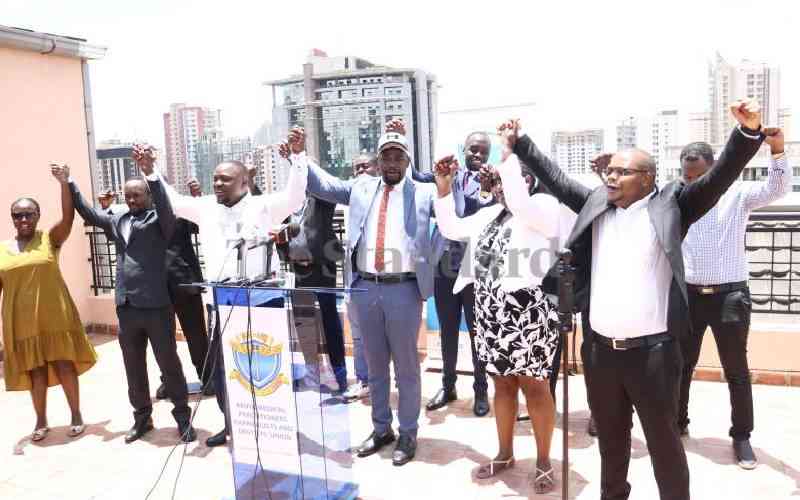×
The Standard e-Paper
Kenya’s Boldest Voice

The crisis in public hospitals is set to worsen after doctors who have been working in referral hospitals announced that they are joining the ongoing strike.
On the day the doctors vowed to stay put, the court ordered them to appear for a meeting called by Head of Public Service Felix Koskei to resolve the crisis.